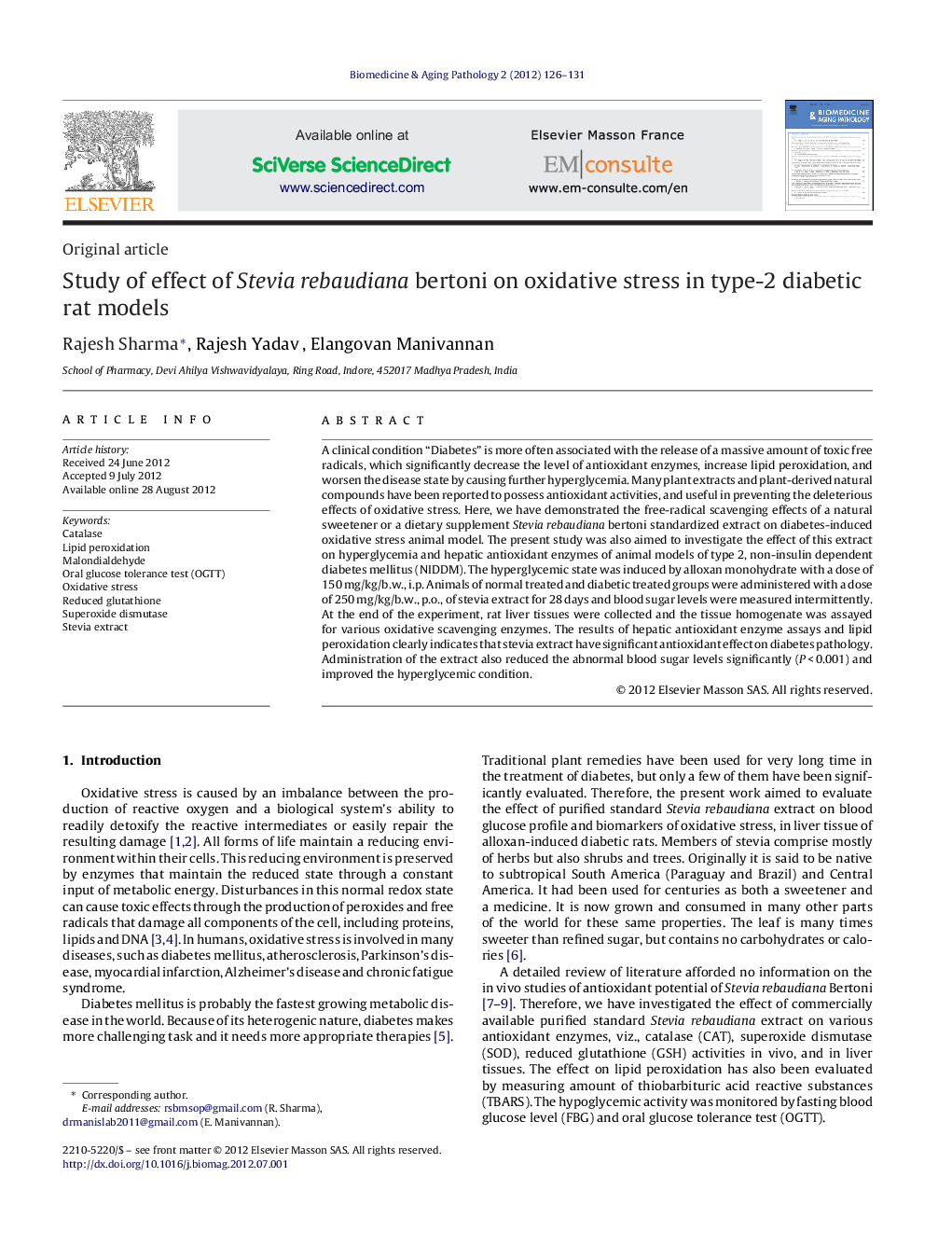| Article ID | Journal | Published Year | Pages | File Type |
|---|---|---|---|---|
| 2576268 | Biomedicine & Aging Pathology | 2012 | 6 Pages |
A clinical condition “Diabetes” is more often associated with the release of a massive amount of toxic free radicals, which significantly decrease the level of antioxidant enzymes, increase lipid peroxidation, and worsen the disease state by causing further hyperglycemia. Many plant extracts and plant-derived natural compounds have been reported to possess antioxidant activities, and useful in preventing the deleterious effects of oxidative stress. Here, we have demonstrated the free-radical scavenging effects of a natural sweetener or a dietary supplement Stevia rebaudiana bertoni standardized extract on diabetes-induced oxidative stress animal model. The present study was also aimed to investigate the effect of this extract on hyperglycemia and hepatic antioxidant enzymes of animal models of type 2, non-insulin dependent diabetes mellitus (NIDDM). The hyperglycemic state was induced by alloxan monohydrate with a dose of 150 mg/kg/b.w., i.p. Animals of normal treated and diabetic treated groups were administered with a dose of 250 mg/kg/b.w., p.o., of stevia extract for 28 days and blood sugar levels were measured intermittently. At the end of the experiment, rat liver tissues were collected and the tissue homogenate was assayed for various oxidative scavenging enzymes. The results of hepatic antioxidant enzyme assays and lipid peroxidation clearly indicates that stevia extract have significant antioxidant effect on diabetes pathology. Administration of the extract also reduced the abnormal blood sugar levels significantly (P < 0.001) and improved the hyperglycemic condition.
